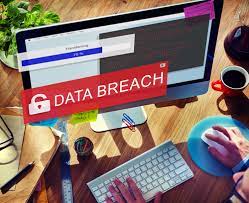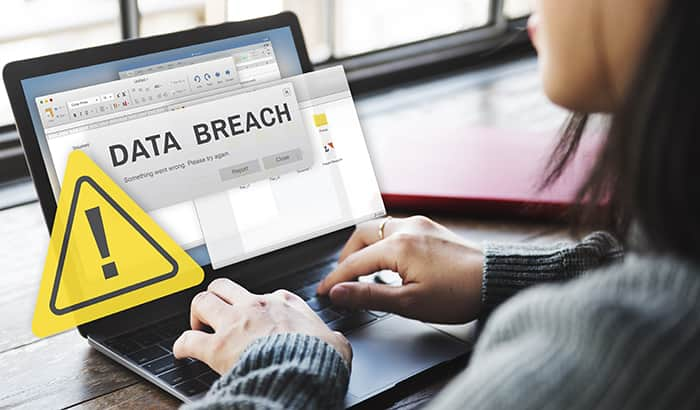Hello!
Are you an avid internet user but are seriously concerned about your privacy and security? Well, you should be. Data theft is a significant problem with rapidly evolving technology.
 As we move further into digitalization, we become more vulnerable to cyber threats and hacks. The internet has its spies and hackers who can scam an individual and an entire organization with his expert coding or content://com.android.browser.home/.
As we move further into digitalization, we become more vulnerable to cyber threats and hacks. The internet has its spies and hackers who can scam an individual and an entire organization with his expert coding or content://com.android.browser.home/.
For preventing this from happening, ensure that you are securing your data in any way you can. And often, staying secure from data breaches is not as difficult as you think.
All you need is to have the right tools to do it. One of the best tools for this can be a VPN. Speaking of VPNs, NordVPN has pretty positive reviews online. Before you purchase it though,
The best tools to secure your data from online breaches:
Following are some of the best tools to use to keep yourself safe from any privacy breaches:
1. Private search engines:
 If you have been using Google all your life and think it’s the best search engine to exist, we agree to that. But is Google the safest search engine? No.
If you have been using Google all your life and think it’s the best search engine to exist, we agree to that. But is Google the safest search engine? No.
According to Google’s policies, it collects users’ data and information to provide personalized results and ads. While this may sound like a seamless experience, you need to understand that Google is storing all your data for this purpose.
Google tracks you through your search habits, identifies you uniquely among other users, and sells your data to third-party advertisers. While you enjoy personalized results according to your search queries, there is a significant data breach behind it.
To curb this scenario, you need to shift to search engines that offer complete encryption and not collect your data. Some of these search engines are:
1. DuckDuckGo:
DuckDuckGo is the most popular privacy-oriented search engine that encrypts all user data and does not leak any information. DuckDuckGo does not track users over the internet for personalized ads either.
2. Search Encrypt:
 Search Encrypt is another fast search engine that uses local encryption connections to secure all user data and information. This private search engine deletes all search history 15 mins after a query is searched on it.
Search Encrypt is another fast search engine that uses local encryption connections to secure all user data and information. This private search engine deletes all search history 15 mins after a query is searched on it.
3. StartPage:
StartPage is a unique search engine that displays search results directly from Google on its own results page. While Google collects user data, StartPage restricts Google from doing it after showing Google’s search results.
2. Virtual Private Networks (VPNs):
A VPN is the best way to keep yourself anonymous and unidentified while you explore the digital world.
 A VPN redirects you to one of its server IP addresses to hide your actual IP address. It masks your identity and does not reveal your search queries to any third party, the government, and Internet Service Provider (ISP).
A VPN redirects you to one of its server IP addresses to hide your actual IP address. It masks your identity and does not reveal your search queries to any third party, the government, and Internet Service Provider (ISP).
VPNs take your privacy seriously and offer strict multilayer encryption so no data leak can ever take place. You can choose NordVPN for this.
NordVPN offers users a no-log policy as it strictly believes in zero data collection. It also provides a kill switch in case your VPN disconnects. In case it does, the kill switch will immediately disconnect the internet connection of your device, so no data leak occurs.
3. Password managers:
 Another way to stay completely safe is to use a good password manager. If you have been using the same password on all websites or two to three passwords on all websites, then you’re doing it all wrong. If a hacker hacks into any one of your accounts, it will be easy for him to hack all your accounts. Honestly, you’re giving a hacker a chance yourself by doing this.
Another way to stay completely safe is to use a good password manager. If you have been using the same password on all websites or two to three passwords on all websites, then you’re doing it all wrong. If a hacker hacks into any one of your accounts, it will be easy for him to hack all your accounts. Honestly, you’re giving a hacker a chance yourself by doing this.
You can use a password manager instead to secure all your passwords. You can secure all your accounts with a strong password and house them into the password manager with a master password.
Some of the best password managers available are:
1. LastPass:
This is one of the best password managers that also offer a free version. It allows users to store login information and passwords and sync it to all their devices for easy access.
2. Dashlane:
Dashlane is an effective password manager that secures all your passwords and keeps a record of them. Dashlane is compatible with all major devices like Firefox, Chrome, and Edge.
3. 1Password:
 This efficient password manager may not offer a free version but is the best at what it does. It keeps user passwords and credentials completely secure.
This efficient password manager may not offer a free version but is the best at what it does. It keeps user passwords and credentials completely secure.
4. Browser plugins:
Browser plugins can also provide some protection to internet users. Many browser plugins and extensions offer users complete privacy and stop users from tracking you while using the internet. But you need to install the most useful plugin according to the browser that you use.
Some of the best plugins available are:
1. Privacy badger:
Privacy Badger is available on all major browsers like Chrome, Edge, Opera, and Firefox. This convenient privacy plugin blocks all third-party advertisers that track you around the internet.
2. HTTPS Everywhere:
 This browser plugin is efficient in what it does. HTTPS Everywhere does what its name suggests. It opens all websites on HTTPS connection and blocks the rest that does not offer HTTPS.
This browser plugin is efficient in what it does. HTTPS Everywhere does what its name suggests. It opens all websites on HTTPS connection and blocks the rest that does not offer HTTPS.
3. uBlock Origin:
This is a trusted ad blocker that restricts all ads from reaching and tracking you over the internet. It tries to keep your data secure by not allowing third-parties to store your data or search habits.
Conclusion:
 Ultimately, protecting your data on the internet is not easy. The tools mentioned above are the best to secure your data across the internet. They will work effectively and allow you to enjoy using the internet without any worries.
Ultimately, protecting your data on the internet is not easy. The tools mentioned above are the best to secure your data across the internet. They will work effectively and allow you to enjoy using the internet without any worries.
Thank you!
Subscribe to our newsletter! Join us on social networks!
See you!






